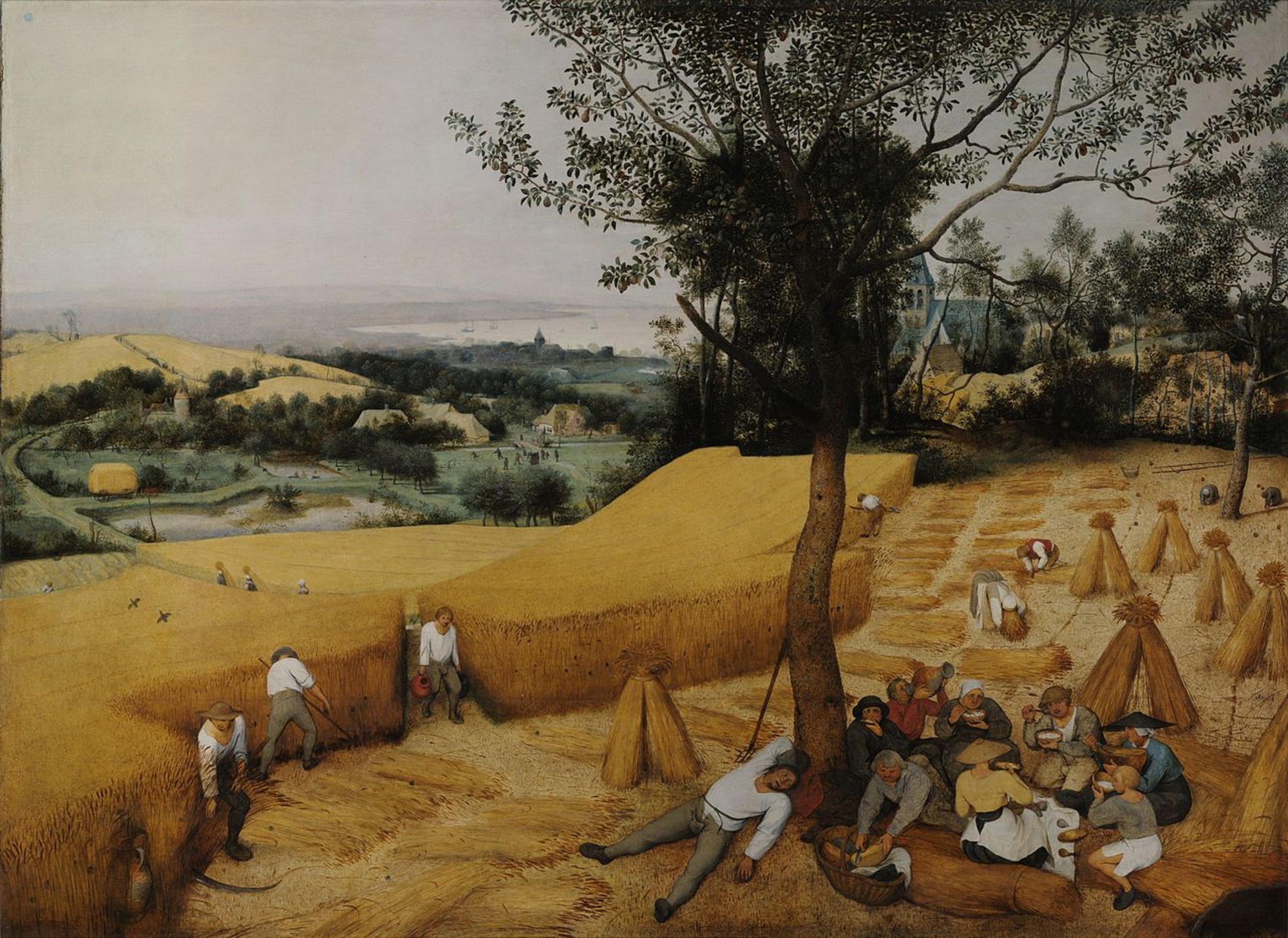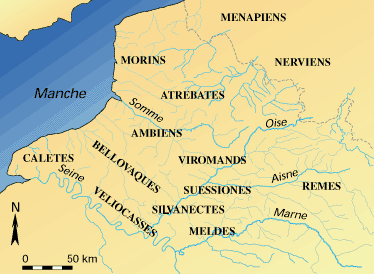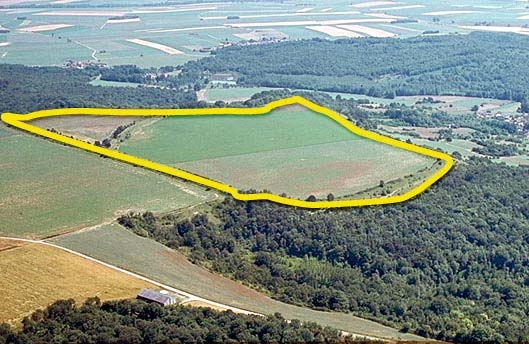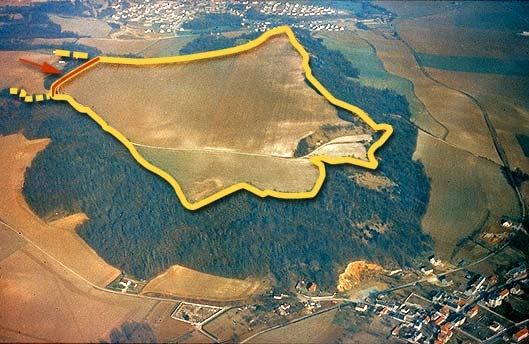- Home
- Discoveries
- Gallo-Roman settlements
- The Conquest of Gaul
Map of Gaul at the time of Caesar's conquest.
"Each province competes with its neighbors for the honor of being the first to have tasted Caesar's punishments. This was the road he took — no, this one over here — to come cut our throats, fondle our women and daughters, and impose his laws on us through interpreters.", Voltaire.
Between 58 and 51 BCE, the conquest of what Caesar referred to as "the three Gauls" was the logical extension of the conquest of southern Gaul, which had taken place between 125 and 120 BCE. J.-C. In 58 BCE, at the request of the Aedui of Morvan, Caesar pushed the migrating Helvetii back into their country of origin. In 57 BCE he penetrated Belgian Gaul and forged an alliance with the Remi, retrenched in their oppidum at Bibrax, at the place called "Vieux Laon" at St-Thomas (Aisne). From here Caesar fought the Belgae, who had joined forces against him, in a series of battles in the Aisne, especially at Mauchamps. He then seized the oppidum at Pommiers (Noviodunum) near Soissons, and then that of Bratuspantium, the location of which has never been established. He then entered the territory of the Ambiani, who immediately surrendered.
The hill known as "Vieux Laon". This is the oppidum of Bibrax that Caesar mentions in his Gallic Wars (II, VI), which tells the story of the conquest. St-Thomas (Aisne).
The oppidum at Noviodunum mentioned by Caesar. This is a protected land spur (éperon barré). Pommiers (Aisne).
After having subjugated the tribes along the Atlantic in 56 BCE, he isolated the Gauls from their natural allies thanks to a campaign in Germania. Caesar then ruthlessly repressed revolts and uprisings, making two notable expeditions to Brittany in 55 and 54 BCE.
In 52 BCE, following his victory over Vercingetorix at the Battle of Alesia, Caesar was preparing to establish his winter quarters when he learned that the Bellovaci were building a coalition against him. He successfully put down this insurrection in 51 BCE. Even still, peace did not immediately ensue, and other uprisings continued until 21 CE.



